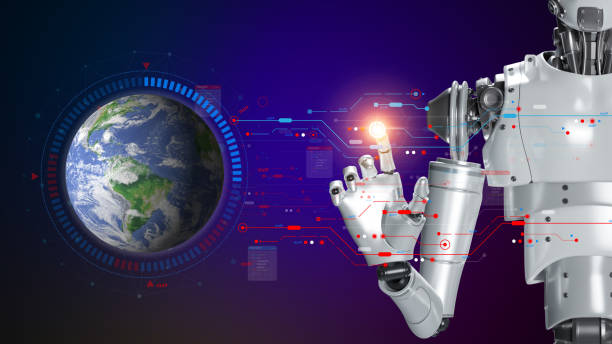Introduction
For decades, science fiction has painted a future filled with intelligent robots assisting humans in daily life. From humanoid robots in movies like Star Wars and I, Robot to AI-driven assistants in Iron Man, these futuristic ideas once seemed like pure fantasy. However, rapid advancements in artificial intelligence (AI) and robotics have brought many of these concepts into reality. AI-powered robots are now transforming the way we live, work, and interact, becoming an integral part of our daily routines.
The Journey from Fiction to Reality
The evolution of AI robotics has been driven by breakthroughs in machine learning, automation, and sensor technology. While early robots were limited to industrial applications, modern AI-driven machines are now present in homes, offices, hospitals, and even public spaces.
1. AI-Powered Assistants in Homes
AI has made its way into our homes through smart devices and robotic assistants:
- Smart Assistants: Virtual assistants like Amazon Alexa, Google Assistant, and Apple’s Siri use AI to answer questions, control smart home devices, and even make shopping recommendations.
- Cleaning Robots: AI-powered robotic vacuums, such as Roomba, can navigate homes, detect obstacles, and clean floors autonomously.
- Companion Robots: Social robots like Miko and ElliQ provide companionship and emotional support, especially for children and the elderly.
2. AI Robotics in Transportation
Self-driving cars, once a sci-fi dream, are now becoming a reality. Companies like Tesla, Waymo, and Uber are developing autonomous vehicles that can navigate roads using AI and advanced sensors. These vehicles aim to reduce traffic accidents, improve efficiency, and revolutionize urban mobility.
Beyond cars, AI-powered drones are being used for deliveries, surveillance, and emergency response, making transportation more efficient and accessible.
3. Healthcare and AI Robotics
Robots are playing a crucial role in improving healthcare services:
- Surgical Robots: Systems like da Vinci Surgical System assist surgeons in performing complex procedures with high precision.
- AI in Diagnosis: AI-powered software analyzes medical images, helping doctors detect diseases like cancer at early stages.
- Elderly Care Robots: Robots like Paro, a robotic seal, provide emotional support for elderly patients, especially those with dementia.
4. AI Robotics in Customer Service and Retail
Businesses are leveraging AI robotics to enhance customer experience:
- Chatbots: AI-powered chatbots handle customer queries, reducing wait times and improving service quality.
- Retail Robots: Robots like Pepper assist shoppers in stores, providing recommendations and answering questions.
- Autonomous Checkout Systems: AI-powered systems like Amazon Go allow customers to shop without standing in long checkout lines.
5. AI in Entertainment and Personalization
From gaming to music streaming, AI is shaping the entertainment industry:
- AI-Generated Content: AI is used to create music, write scripts, and even generate realistic human-like voices.
- Personalized Recommendations: Streaming platforms like Netflix, Spotify, and YouTube use AI to recommend content based on user preferences.
- AI in Gaming: AI-powered characters in video games adapt to player behavior, creating more immersive experiences.
Challenges and Ethical Considerations
Despite its benefits, AI robotics raises ethical concerns, including:
- Privacy Issues: AI devices collect and process vast amounts of personal data, raising concerns about surveillance and misuse.
- Job Displacement: Automation may replace some jobs, requiring reskilling and workforce adaptation.
- Bias in AI: AI systems must be designed to prevent biases that could lead to unfair decision-making.
Conclusion
What was once science fiction is now reality—AI robotics is transforming everyday life in ways we never imagined. From smart assistants to self-driving cars and healthcare robots, AI-powered machines are enhancing convenience, efficiency, and safety. However, as we embrace this technological revolution, it’s essential to address ethical challenges and ensure AI benefits all of humanity. The future of AI robotics is just beginning, and its impact on our daily lives will continue to grow in exciting and unexpected ways.

